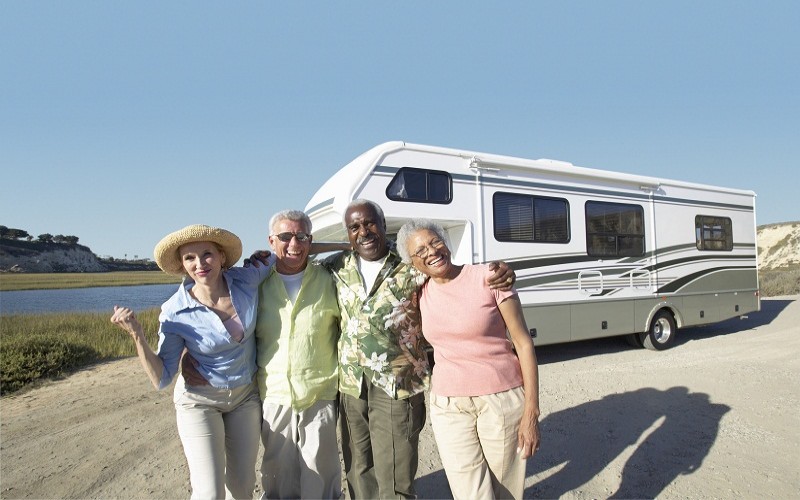5 RV Travel & Safety Tips for Retirees

Add some excitement to your retirement by adding RV travelling to your itinerary. Whether you want to enjoy the occasional RV rental to allow you explore the country by road or choose to invest in an RV as your second—or first-home, you want to make sure you follow safety precautions during your journey. Before you pack your bags and hit the open road, make sure your next RV getaway is a safe one by following these tips.
1. Consider RV Size

Whether you’re new to RV living or an experienced RV traveller, you want to get behind the wheel of an RV that is comfortable for you to drive. RVs come in several sizes, and your comfort driving each size may vary. So, before you invest in an RV rental, enjoy a test drive with each size of RV so that you know what you’re comfortable driving. Also make sure there is a good showerhead while you looking for rv.
If you aren’t willing to drive a Class A RV, the largest RV, you might consider travelling in a Class B RV, which is built on a van chassis and may be more manoeuvrable and comfortable for novice RV drivers. Similarly, a Class C RV features a van or truck chassis for easier manoeuvrability.
2. Choose an Accessible RV
Consider how comfortably you can move in your RV or caravan. Mobility is important as you age, and you want your RV to be comfortable and easy to move around. Make sure the RV has a platform and window also that makes entering and exiting the vehicle simple.
If you travel at 60 and use a walker or wheelchair, make sure the RV can accommodate your needs. Walk through the RV and make sure pathways allow for easy traffic flow and are free of tripping hazards. These small precautions can ensure that you’re always safe in your RV.
3. Identify Accessible Campsites

If you’re facing mobility challenges and using a wheelchair, you want to find campsites that are built with mobility features that can assist you during your journey. Research appropriate campsites before you begin your trip so that you can find safe and accessible spots to stay. Some features to look for include wider RV parking spaces that can accommodate wheelchair lifts and clear ground space surrounding tent pads and tent platforms, which allow individuals with mobility devices to easily manoeuvre around the tent.
4. Pack an Emergency Kit
An emergency kit provides you with essential items should an unexpected incident occur during your RV vacation. Pack your kit with bottled water and non-perishable food items in case you get stranded on the side of the road. Flares or bright orange triangles are perfect for setting up around a stranded RV to ensure your safety. A first-aid kit, including bandages, gauze, and antibiotic ointment, can help you deal with minor injuries with ease.
5. Maintain Driving Safety
Before you hit the road, ensure that your driver’s license is up to date. If you wear glasses or contact lenses, ensure your prescription is current so that your vision is excellent. Always wear your lenses when you’re driving to improve visibility. Talk to your doctor about any medications you’re taking to ensure they don’t impair your driving abilities.
Conclusion
Enjoy the freedom of RV travelling during your retirement. These precautions allow you to maximize your safety on your next adventure.





